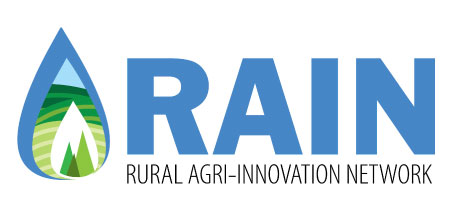Biostimulants are a large part of agricultural inputs and there is a growing number of commercial microbial inoculants. These aim to restore soil health and enhance crop yields after resource intensive crops or soil disturbance. While farmers may be compelled to apply commercial inoculants, whether they are effective is unknown, which perpetuates a sentiment of skepticism toward these products among farmers. Arbuscular mycorrhizal fungi (AMF) are one of the most important plant symbiosis and the number of AMF inoculants available on the market is growing. However, these inoculants typically contain a single AMF strain, which may not necessarily establish. Agricultural systems already contain indigenous AMF that we believe can be used as a natural source of inoculum. As such, our project will determine whether on-farm augmentation of indigenous AMF is a more effective, safe, sustainable, and cost-effective alternative than using commercial inoculants.
The project presents a unique opportunity to address a major problem and knowledge gap. That is, canola, a major cash crop in northern Ontario, is nutrient rich and causes major declines in soil fertility for subsequent crops in the rotation. Canola does not establish associations with AMF, thereby causing a reduction in the abundance of these beneficial soil organisms. Commercial companies produce AMF inoculants. However, their effectiveness and potential consequences to soil health remain unknown. AMF are widespread in soils and we believe that they can be cultivated by farmers for on-farm applications using a novel cost-effective and simple approach.
In year one, we will start by producing indigenous AMF inoculumon-farm through augmentation. This will consist of planting the highly mycorrhizal-associated Sorghum-Sudan Grass as a trap crop. Sorghum-Sudan Grass forms an extensive thin and highly branched root system that can be harvested as a source of inoculum for field application.
In year two, we will test the indigenous AMF inoculum produced on-farm against commercial inoculum compared to non-inoculated sites used in the previous year that were under conventional canola. We will also determine to what extent AMF inoculation can compensate for reduced fertilizer inputs and its impact on soil health. In the second year of the trial, the design consists of three main reps, including No fertilizer, 50% recommended P and K rate (OMAFRA recommendations), 100% P and K recommendations. As well as three split plots, including control plots (No AMF), commercial AMF product and Indigenous AMF product (AMF grown on site).
